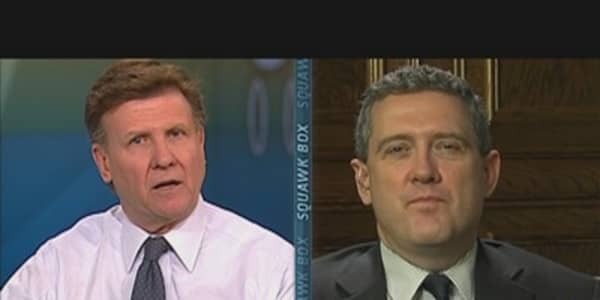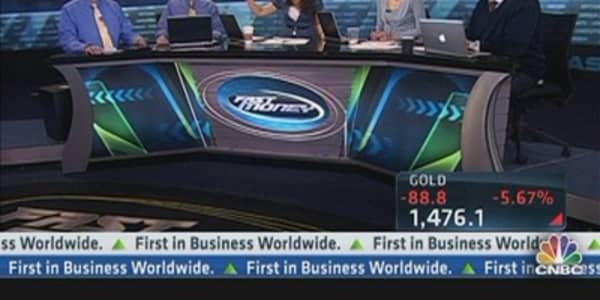Financial Lessons Learned
Here's a roundup of the most rewarding moments shared by CNBC experts this week to help with financial planning, stock options and knowing the right time to sell.
Easy Steps to Start a Portfolio
Don't throw all your money into the market, said "Fast Money" contributor Guy Adami. Build a foundation on sector allocation, namely, financials, energy and utilities.
"Fast Money" expert Jon Najarian also suggested going with 75 percent stock, throw in some commodities and keep some cash on the side to "keep your [bull] powder dry."
What to Know About Investing in a Catholic Fund
Catholic-oriented funds operate differently but can still be profitable, said George Schwartz, president and CEO of Ave Maria Funds.
The Ave Maria Catholic Values Fund started in 2001, and now has six different funds, with different investment objectives. The five-star-rated Ave Maria Rising Dividend Fund has been around since 2005 and has had double-digit return on average, Schwartz said.
The fund has a Catholic advisory board that asks portfolio managers to screen out companies that support pornography, stem-cell research and abortion, which includes Planned Parenthood. It screens out entertainment companies and hotel companies that show pornography, and most of the drug companies and some insurance companies that pay for abortions.
"Abortion is the big one," Schwartz said. "It's the focus of 50,000 shareholders who are pro-life and pro-family."
Still, he said, "We don't screen out things that the so-called socially responsible funds focus on," such as companies that are deemed to be polluters, tobacco, firearms and alcohol.
About 150 companies have been screened out, but "2,850 companies are left and produce excellent investment results for shareholders," Schwartz said.
Train Young People About Financial Learning Early On
Ted Leonsis, a partner of Revolution Growth Fund and a board member for American Express, knows that financial fundamentals are critical to everyone. He mentioned a deal between American Express and a young start-up company called EverFi, which is creating financial literacy classes for minorities and inner-city kids to understand economic basics.
"It's really a shame," Leonsis said about the lack of financial understanding among youth. "Once they get out of school, they push them to go to college [without the needed training], and then they're their own small business."
The executive spoke of companies that have used "double bottom line businesses," such as AOL and Groupon, which persevered financially with new business models and did something fundamentally good for customers: Save consumers a lot of money with a communal online shopping experience and drive lots of consumers to businesses. Leonsis is co-CEO of Groupon and a former senior executive of AOL.
Sharing Most Memorable Personal Investment Experience
Barry Knapp, head of Barclays U.S. portfolio strategy, and Brian Belski, chief investment strategist at BMO Capital Markets, shared their most unforgettable financial decisions—on a personal level.
Knapp, who worked for Lehman Brothers for 19 years, recalled that in 2005, he sold some stock and bought ... a ski house in .
"That is far and away the single-best personal investment," he said.
Belski also shared a similar priceless experience of making the right decision at the right time: In July 2000, his boss at Piper Jaffray informed him that things were going so well he and other research analysts would be given a mid-year bonus.
He said his immediate reaction was to call his wife to say he was selling all their stock. Why, she asked in disbelief, he recalled.
Belski explained that "traditionally, financial services companies pay at the top and sell at the bottom. And that's exactly what happened: We didn't buy any stock for two years."
Personal takeaway? Know your business and don't be afraid to act.




